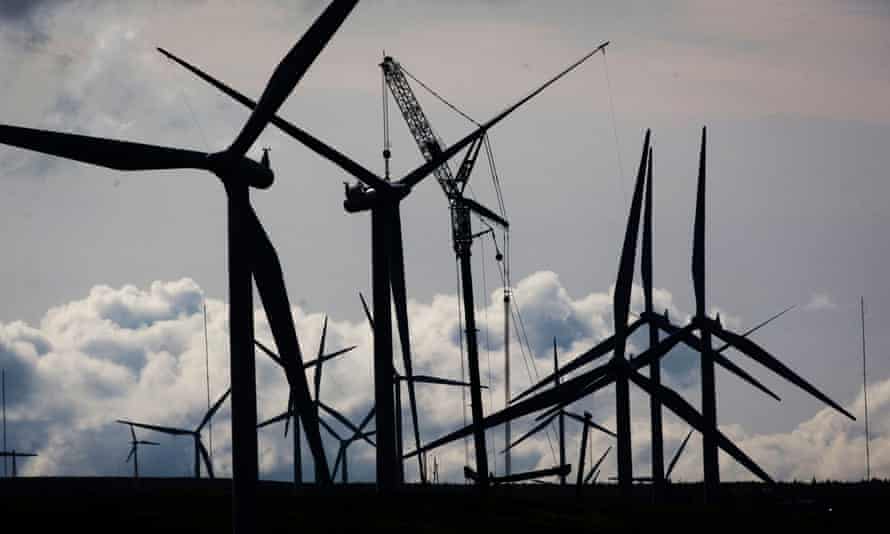UK plan to replace fossil gas with blue hydrogen ‘may backfire’
Academics warn ‘fugitive’ emissions from producing hydrogen could be 20% worse for climate than using gas

The government’s plan to replace fossil gas with “blue” hydrogen to help meet its climate targets could backfire after US academics found that it may lead to more emissions than using gas.
In some cases blue hydrogen, which is made from fossil gas, could be up to 20% worse for the climate than using gas in homes and heavy industry, owing to the emissions that escape when gas is extracted from the ground and split to produce hydrogen.
The process leaves a byproduct of carbon dioxide and methane, which fossil fuel companies plan to trap using carbon capture technology. However, even the most advanced schemes cannot capture all the emissions, leaving some to enter the atmosphere and contribute to global heating.
Professors from Cornell and Stanford universities calculated that these “fugitive” emissions from producing hydrogen could eclipse those associated with extracting and burning gas when multiplied by the amount of gas required to make an equivalent amount of energy from hydrogen.
Robert Howarth, a Cornell University professor and co-author of the study, said the research was the first to be published in a peer-reviewed journal to lay bare the “significant lifecycle emissions intensity of blue hydrogen”.
The paper, which will be published in Energy Science and Engineering, warned that blue hydrogen may be “a distraction” or “something that may delay needed action to truly decarbonise the global energy economy”.
The researchers recommended a focus on green hydrogen, which is made using renewable electricity to extract hydrogen from water, leaving only oxygen as a byproduct.
“This is a warning signal to governments that the only ‘clean’ hydrogen they should invest public funds in is truly net zero, green hydrogen made from wind and solar energy,” Howarth said.
A spokesperson for the UK government said hydrogen would be “essential for meeting our legally binding commitment to eliminating the UK’s contribution to climate change by 2050” and promised further details in the government’s forthcoming hydrogen strategy, which is expected next month.
“Independent reports, including that from the Climate Change Committee, show that a combination of blue and green hydrogen is consistent with reaching net zero but alongside the strategy, we will consult on a new UK standard for low-carbon hydrogen production to ensure the technologies we support make a real contribution to our goals,” the spokesperson said.